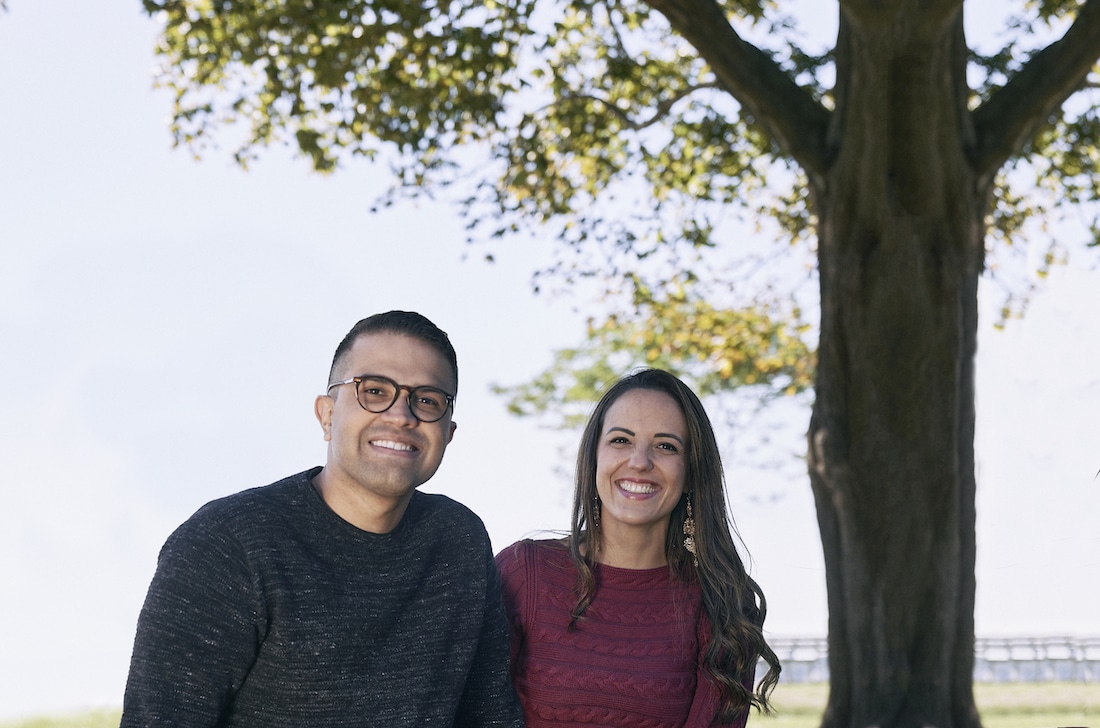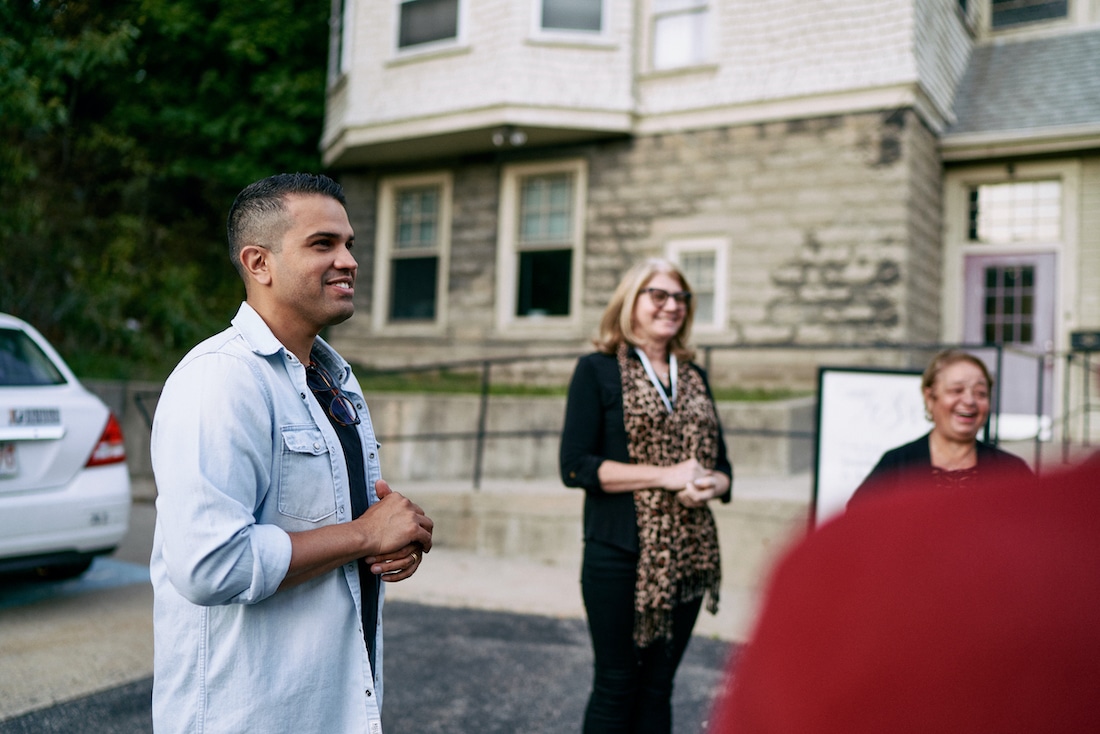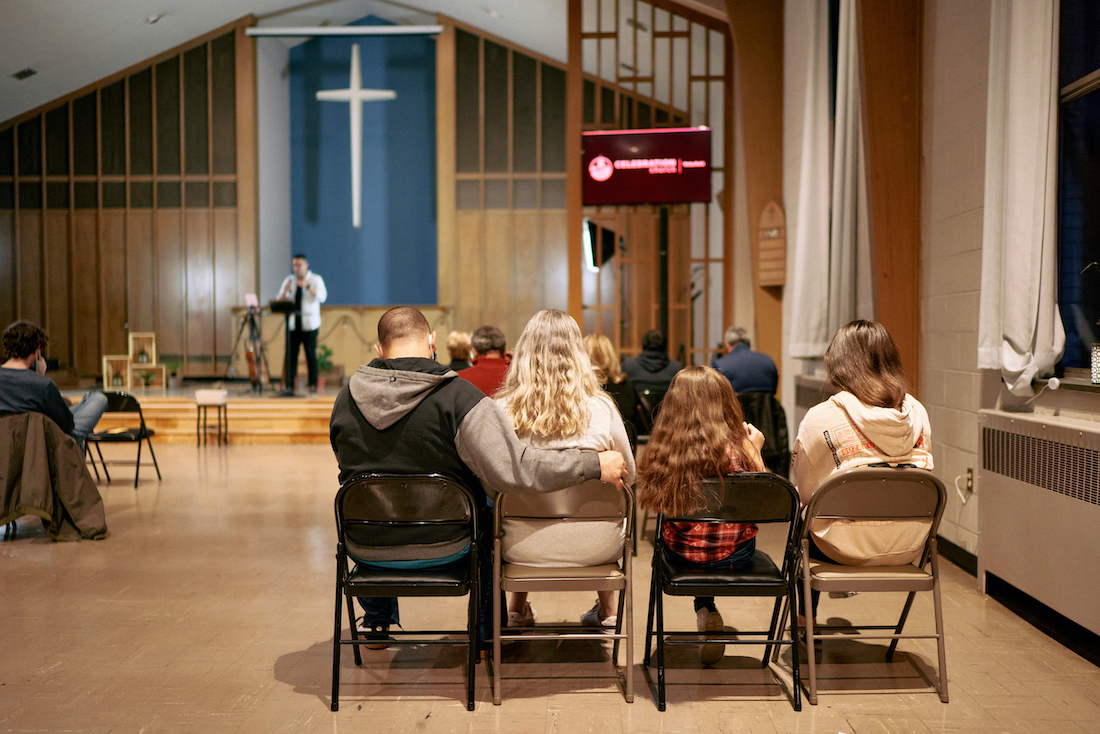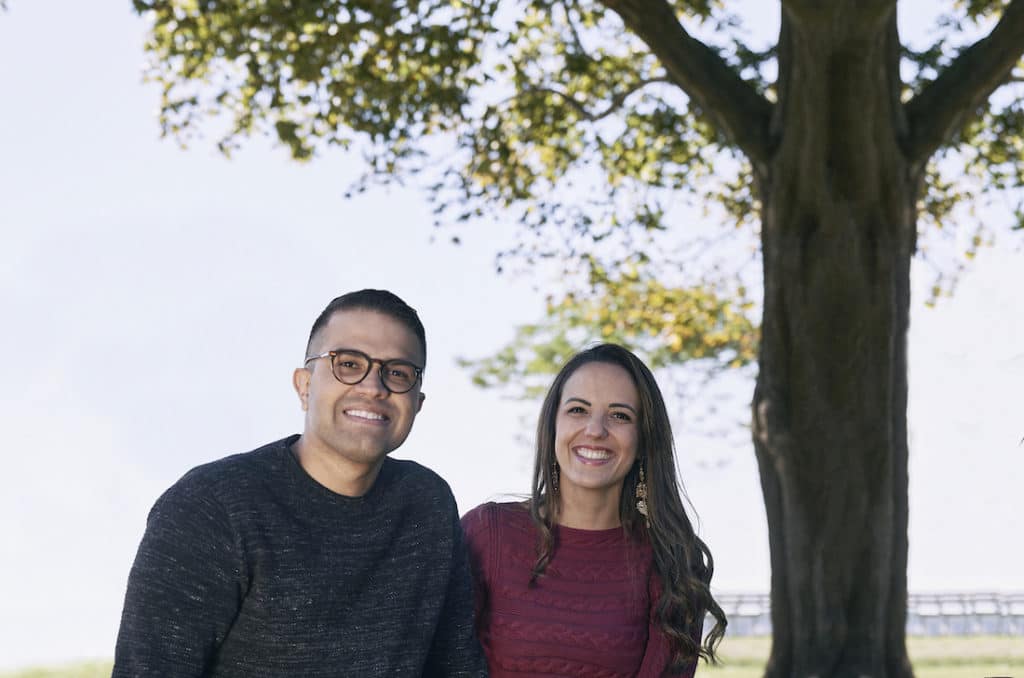BOSTON — When Victor and Ludmila Moura began to feel the call to plant a church in Boston, it was for a very specific reason. The Brazilian population there tugged on their hearts.

Even before COVID-19, the city’s Brazilian community faced a lot of struggles. Many worked long hours and struggled with family relationships and depression. Then when the virus hit, things only got worse.
“Some people lost their jobs,” Victor said.
It brought to the surface even greater needs, and his congregation was barely a year old when the pandemic began. But they saw it as a chance to show the community how followers of Jesus love each other and their neighbors.
“We’re not a large church, but we tried to say to our people, ‘let’s take ownership of this situation,’” he said. “We started raising money to buy food, diapers, medicine and other stuff, and we helped people in our church pay their bills. We’ve also tried to connect people with job openings when we can.”
And as people in the church called each other to find out about needs, one person who came to the forefront was a man named Antonio*, a friend of one of the members.
“He’s a driver, and he had cancer and has diabetes, too,” Victor said. “When COVID-19 hit, all of his employers were kind of afraid to give him work because he was high risk.”

That was when Antonio found out what the love of Jesus can look like. The congregation paid his rent for two months and helped him get food and medicine.
“He started attending one of our small groups because of that,” Victor said. “Through this whole situation, it’s been our joy to get to help people.”
Challenges along the way
It hasn’t all been easy. Along the way, Victor has battled frustration. Some people who seemed very close to following Jesus before the pandemic have become disconnected, Victor said. “That was discouraging for me as a pastor.”
But he also sees people like Antonio and a number of other Brazilians who have found hope in Jesus and are reaching out to their friends. When that happens, Victor is reminded of why he and Ludmila felt they had to leave Brazil in the first place to start a church in Boston. They were comfortable in Brazil—more than comfortable, in fact. He was a pastor of a growing church, and she was a government lawyer doing well in her career.
“We were in our church, a great salary, great prestige,” he said. “We had our own house, cars and family, friends. Our hometown.”
But over time through a connection with a friend, Victor began to feel God pulling him toward planting a church in New England where more than 450,000 Brazilians live. Less than 3 percent have an active faith in Christ.

At first, the Mouras’ reaction was anguish. They didn’t want to leave everything they loved in Brazil. They knew they’d find challenges on the other side—a new language to learn and new careers to forge. On top of that, Ludmila was also expecting a baby. Those challenges all felt monumental, and that was before COVID-19 was a known problem.
But as they prayed, the call got stronger.
“I started realizing maybe there was a plan for us in New England,” Victor said.
A new generation of opportunity
Over time, Victor found he was even more burdened for second- and third-generation Brazilians in the area. With English as their heart language, they struggle to find their place, even in their own families.
“According to therapists in our area, those teenagers are in a crisis about their identity,” he said, adding that they don’t connect in a church that only speaks Portuguese. “We are really trying to target the second and third gen because they are not going anywhere. They are not going to American churches. They are not going to Brazilian churches.”
So, with that in mind, Grace Church offers services in English and Portuguese. Victor said he wants it to be a church where those struggling to find their identity can find a place in Christ, people like Ana*, a 21-year-old third-generation Brazilian. English is her heart language, and her mom and grandmother were involved in church, but when she met the Mouras, she hadn’t been to church since she was 13.
“She was out of the church because she couldn’t connect in an American church, but she also couldn’t connect in a Brazilian church because of the culture,” Victor said. “It’s so different. She’s back to Christ now, but she’s still struggling with her background.”

It’s a complex problem, he said, but the church’s most effective strategy is a simple one: Christ-centered community. Missional home groups are their greatest strategy, he said.
“Millennials hate superficial stuff,” Victor said. “I think the most effective strategy to reach them is being a friend.”
That’s worked with young adults like Ana, and it’s worked with older adults like Antonio who have been drawn in by the love of a Christ-centered community. Even during the pandemic, the pull of caring neighbors has remained just as strong.
“We are glad to help people, and we see this as a great opportunity,” Victor said.
The Annie Armstrong Easter Offering® provides half of NAMB’s annual budget, and 100 percent of the proceeds go to serve missionaries in the field. The offering is used on the field for training, support and care for missionaries like the Mouras and for evangelism resources.
*names have been changed
Published March 9, 2021
